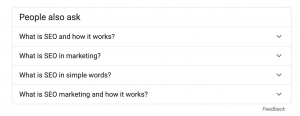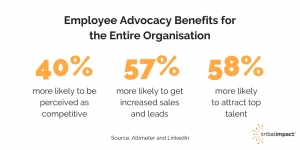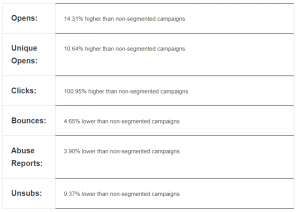Mozilla wants you to love Firefox again
But can it avoid upsetting its most loyal users along the way?
BY Jared Newman
Last month, Mozilla made a quiet change in Firefox that caused some diehard users to revolt.
Last month, Mozilla made a quiet change in Firefox that caused some diehard users to revolt.
Deep in the browser’s privacy settings, Firefox introduced an experimental “privacy-preserving ad measurement” toggle, enabling it by default without explanation or disclosure. It’s a system that Mozilla designed in partnership with Meta, allowing advertisers to measure the success of their campaigns without collecting individual user data.
Privacy experts say the new toggle is mostly harmless, but Firefox users saw it as a betrayal. The Mozilla Corporation, which operates Firefox as a subsidiary of the nonprofit Mozilla Foundation, has always claimed to put people ahead of business interests, yet here it was offering a gift to the ad industry while keeping users in the dark.
“They made this technology for advertisers, specifically,” says Jonah Aragon, founder of the Privacy Guides website. “There’s no direct benefit to the user in creating this. It’s software that only serves a party other than the user.”
The episode shows how Mozilla risks alienating longtime fans as it tries to revitalize its once-beloved web browser. Laura Chambers, who stepped into an interim CEO role at Mozilla in February, says the company is reinvesting in Firefox after letting it languish in recent years, hoping to reestablish the browser as independent alternative to the likes of Google’s Chrome and Apple’s Safari. But some of those investments, which also include forays into generative AI, may further upset the community that’s been sticking with Firefox all these years.
What’s coming to Firefox
In its mid-2000s heyday, Firefox was the top choice for anyone who wanted an alternative to Internet Explorer. Arising as an open-source spin-off from Netscape, it was faster and more secure than Microsoft’s browser, and it offered cutting-edge features such as tabbed browsing and pop-up blocking.
But over the years, Firefox’s popularity has dwindled. Google Chrome won over desktop users in the early 2010s with its streamlined design and speedier JavaScript performance, and smartphone users tend to stick with the default Safari for iOS and Chrome for Android. Meanwhile, new browsers such as Brave, Vivaldi, and Arc have offered stronger focuses on privacy or productivity. Data from Statcounter puts Firefox’s browser market share at 2.7% (7% on laptops and desktops), down from its peak of 31% in 2010.
Chambers acknowledges that Mozilla lost sight of Firefox in recent years as it chased opportunities outside the browser, such as VPN service and email masking. When she replaced Mitchell Baker as CEO in February, the company scaled back those other efforts and made Firefox a priority again.
“Yes, Mozilla is refocusing on Firefox,” she says. “Obviously, it’s our core product, so it’s an important piece of the business for us, but we think it’s also really an important part of the internet.”
Some of that focus involves adding features that have become table-stakes in other browsers. In June, Mozilla added vertical tab support in Firefox’s experimental branch, echoing a feature that Microsoft’s Edge browser helped popularize three years ago. It’s also working on tab grouping features and an easier way to switch between user profiles.
Mozilla is even revisiting the concept of web apps, in which users can install websites as freestanding desktop applications. Mozilla abandoned work on Progressive Web Apps in Firefox a few years ago to the dismay of many power users, but now it’s talking with community members about a potential path forward.
“We haven’t always prioritized those features as highly as we should have,” Chambers says. “That’s been a real shift that’s been very felt in the community, that the things they’re asking for . . . are really being prioritized and brought to life.”
Getting into ad tech
As Mozilla builds out meat-and-potatoes browser features, it’s also pushing into some areas that will make longtime users uneasy.
On the advertising front, Mozilla takes a less adversarial stance than some rival browsers such as Brave and DuckDuckGo. While Firefox blocks many of the tracking mechanisms that advertisers use, the ad tech industry is finding workarounds that are trickier to stop without making websites break. Mozilla is wary of taking more aggressive steps against tracking and would rather offer advertisers a more privacy-friendly alternative.
“We’ve reached the point where if we take further steps on privacy, that harms the advertising industry and the things that we think are useful and contribute positively to the web, but also has a whole bunch of collateral implications,” says Martin Thomson, a distinguished engineer at Mozilla.
Firefox’s “privacy-preserving ad measurement” setting stands as an early attempt at an alternative approach. It allows advertisers to see how many conversions a website generated, but in a way that prevents any one party from being having access to individual browsing data.
Lena Cohen, a staff technologist at the Electronic Frontier Foundation, says it’s a better system than Google’s “Privacy Sandbox,” which the search giant developed as an alternative to traditional tracking cookies in Chrome but abandoned last month. Mozilla’s system only measures the success rate of ads—it doesn’t help companies target those ads in the first place—and it’s less susceptible to abuse due to limits on how much data is stored and which parties are allowed to access it.
“It’s much more privacy-preserving than Google’s version of the same feature,” Cohen says.
Still, the rollout prompted a backlash on social media, where Mozilla struggled to explain why it introduced a new ad-related feature without a consent prompt or even a warning. In June, Mozilla also announced its acquisition of Anonym, a startup led by former Meta executives that has its own privacy-focused ad measurement system. While Mozilla has no plans to integrate Anonym’s tech in Firefox, the move led to even more anxiety about the kind of company Mozilla was becoming.
“It’s not really clear why they would [prioritize] the advertising industry, of all people, except of course their obvious financial interest in advertising technology,” says Aragon of Privacy Guides.
Freedom from Google
The tension around Firefox stems in part from Mozilla’s precarious financial position, which is heavily dependent on royalty payments from Google. In 2022, nearly 86% of Mozilla’s revenue came from Google, which paid $ 510 million to be Firefox’s default search engine. Its attempts to diversify, through VPN service and other subscriptions, haven’t gained much traction.
Chambers says that becoming less dependent on Google is “absolutely a priority,” and acknowledges that building an ad-tech business is one way of doing that. Mozilla is hoping that emerging privacy regulations and wider adoption of anti-tracking tools in web browsers will increase demand for services like Anonym and for systems like Firefox’s privacy-preserving ad measurements.
Still, Chambers regrets the way the rollout went and “calls it a “good learning for us,” though she stands behind the feature and the intent behind it.
“It’s a good reminder that we need to always proactively communicate what we’re working on, even if it’s just a little test,” she says.
Other revenue-generating ideas are forthcoming. Chambers says Mozilla plans to launch new products outside of Firefox under a “design sprint” model, aimed at quickly figuring out what works and what doesn’t. It’s also making forays into generative AI in Firefox, starting with a chatbot sidebar in the browser’s experimental branch.
Mozilla knows that not everyone will be happy with those developments either—there’s plenty of overlap between Firefox users who dislike ad tech and those who are wary of generative AI—but the company says it will be transparent and give users choices.
“Not every feature we build will be for everyone, but we want people to feel like they’re empowered to choose how they want to use the browser,” says Vicky Chin, Mozilla’s vice president of engineering.
Can Firefox be cool again?
All of the changes Mozilla is making bring to mind a more fundamental question: Who is Firefox for?
In other words, if Firefox isn’t the most aggressive browser for privacy, the best option for productivity, or the most convenient option on mobile devices, what’s the point in seeking it out? The risk for Mozilla, especially if it keeps provoking its most fervent followers, is that Firefox winds up in a mushy middle ground that appeals to no one.
Chambers believes that the power of the Firefox brand and what it stands for will help carry it forward. She says to expect a bigger marketing push for Firefox in the United States soon, echoing a “Challenge the default” ad campaign that was successful in Germany last summer. Mozilla’s nonprofit ownership structure, and the idea that it’s not beholden to corporate interests, figures heavily into those plans.
“We’re finding that our messages are particularly sticking with younger generations that like to make choices that align with their values,” Chambers says.
And despite tensions within the Firefox community, there are signs of a willingness to forgive. Aragon of Privacy Guides says that with the right settings tweaks, Firefox is still the best browser for privacy, and the fact that it uses its own rendering engine (most other browsers use Google’s Blink or Apple’s WebKit) is worth something, even if Mozilla’s influence isn’t what it used to be. He just wants Mozilla to get back to taking a community-first approach and work on the things that people actually want.
“We do still like Firefox quite a bit,” he says. “It’s just a very troubling direction they’ve been headed in.”

ABOUT THE AUTHOR
(8)
Report Post








